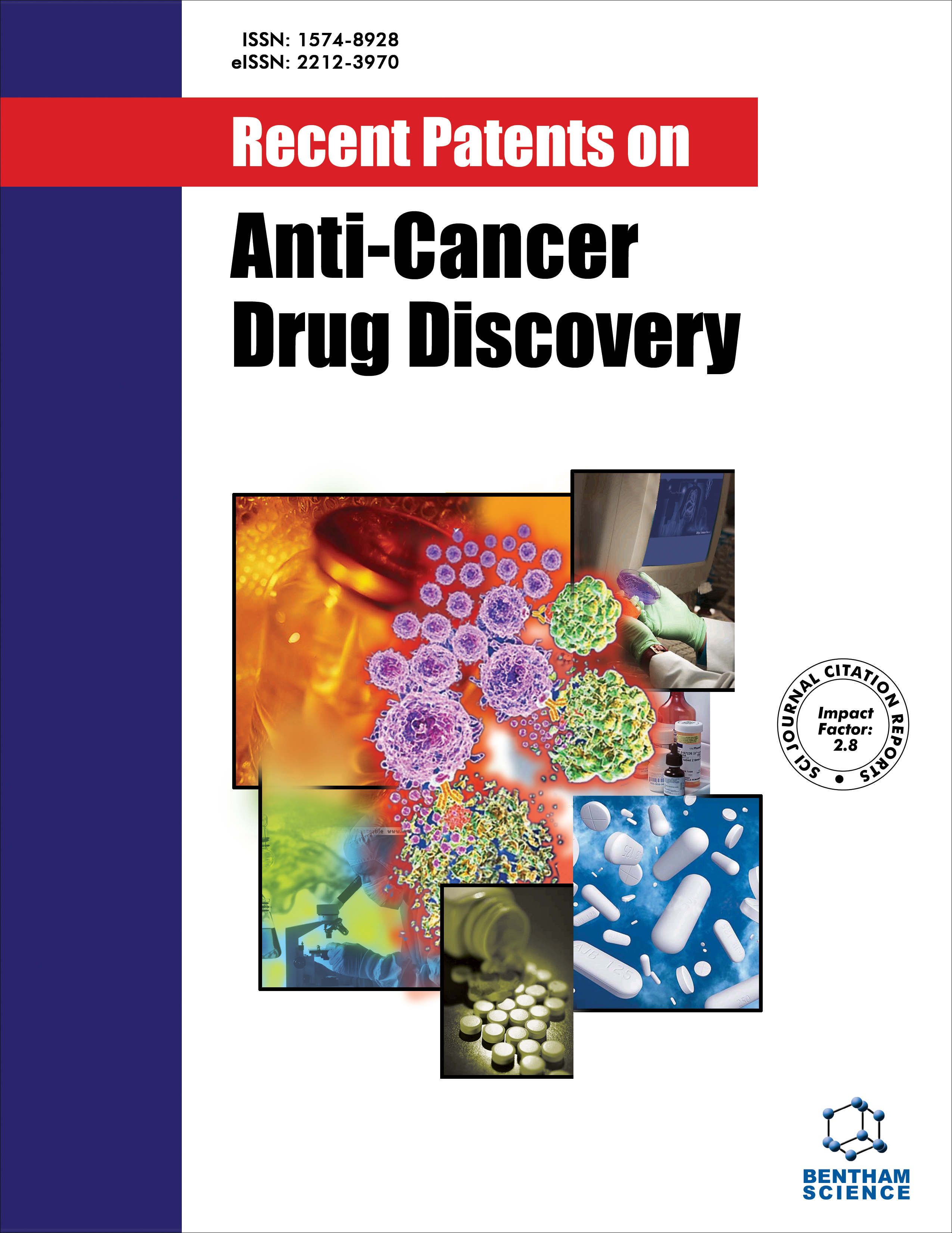-
s Research Progress on the Mechanisms of Combined Bevacizumab and Radiotherapy
- Source: Recent Patents on Anti-Cancer Drug Discovery, Volume 9, Issue 1, Jan 2014, p. 129 - 134
-
- 01 Jan 2014
Abstract
Bevacizumab, one of the best-known patents of VEGF inhibitor, has demonstrated significant radiosensitive effects on various preclinical tumor models and clinical trials recently. The radiosensitive effects of this novel patent have achieved satisfactory efficacy through the following mechanisms: normalization of the tumor vasculature, overcoming resistance to radiation, inhibition of repopulation after radiation, and blockade of radiation-induced increased VEGF expression. The combination of bevacizumab with radiotherapy in the treatment of malignant tumors was an inevitable path for the further clinical development of bevacizumab and a very good opportunity for improving the curative effect of radiotherapy. However, many questions such as those regarding the bevacizumab administration dosage and schedule, radio sensitivity efficacy evaluation and multi-target radiosensitive therapy need further research. The advent of bevacizumab combined with radiation has left physicians to encounter multiple challenges as well as opportunities for improving anti-cancer drug treatments.


